
Young forever,naive forever
Lack of cultural capital, chicken baby is empty
In the past few days, the "double reduction" rules in Beijing and other places have been implemented, and children, schools, and parents have been arranged clearly:
Want to make up lessons? Yes, but it is strictly limited before 21:00 on weekdays; schools, after-school services and more high-quality resources; parents, guide children to complete homework, do housework, and perform cultural and sports activities.
The response of many parents is that they will still apply for extracurricular classes, but most of them will turn to quality classes.
Because whether it is supplementary classes or classes for literary and sports interests, parents simply want to give their children a better future through education.
Recently, when I read the works of French sociologist Bourdieu, I found that this great scholar had studied the problem of "chicken babies" decades ago, and he pointed out keenly: "Chicken babies" who follow the trend of parents, Might just be empty.

Although Bourdieu's research object was the French education system at that time, it is actually very appropriate when applied to our current educational scene.
" Cultural capital" is a key concept in education proposed by Bourdieu, and it is also a thinking tool for us to think about various intricate educational issues at present. From this perspective——
Chicken baby has its rationality, but if you can't figure out the field , it will be the bane of excessive chicken baby;
And chicken babies who ignore the family's cultural capital may backfire;
The cultural capital that parents give their children is likely to fall behind the times, that is, "lag" .
#01
Chicken babies are essentially "cultural capital" for children
From the perspective of money investment, "chicken baby" is definitely an irrational behavior. Regardless of whether the child attends training classes or studies abroad, there is a high probability that they will not be able to make money back. Isn’t it better for parents to save the money to buy a house?
But we can see that even wealthy families who have long been comforted by food and clothing attach great importance to education, and we have longed for the "literary family" or despised the "upstart" mentality since ancient times. In addition to physical capital, there is also "cultural capital".
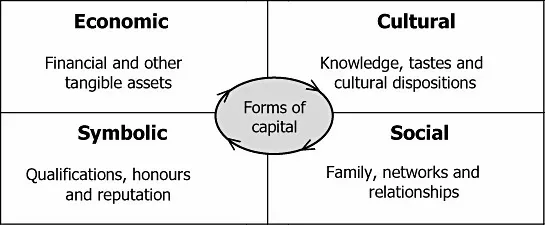
What exactly do these cultural capitals include?
The first is the collection of books, pianos, works of art and other things that can be seen and touched at home. This is called cultural capital in material form .
The second is called the cultural capital of the body form , which can be understood as the knowledge and ability acquired through learning.
For example, a child invests time and effort at school to listen to lectures in get out of class, and goes home to review after class, and gradually develops the ability to write, count, and read. These abilities and skills are all cultural capital in the form of a body. Once acquired, cultural capital merges with the child's body and mind and becomes part of their habitus .
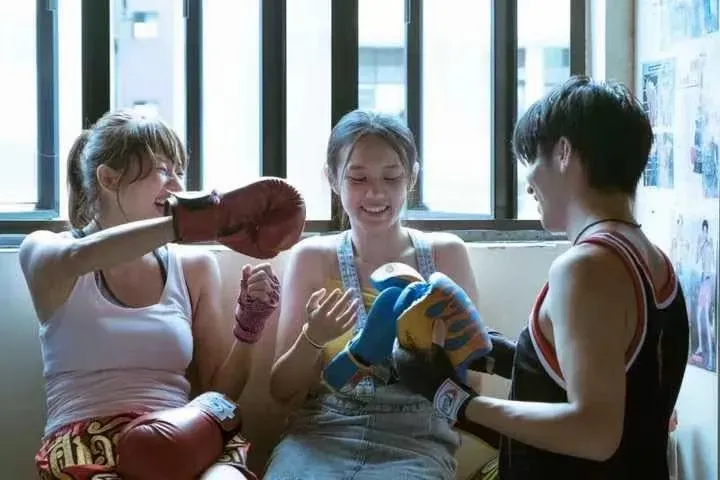
The third is academic qualifications . These institutional forms are actually the credentials of the second type of "physical form of cultural capital" set up by society, and set clear standards for the value of cultural capital.
To be honest, the first two kinds of cultural capital are not easy to judge, but the academic certificate is very intuitive. With this type of certificate, you can save yourself the trouble of constantly proving your ability.
However, different educational backgrounds have different cultural capitals. Bourdieu specially proposed the metaphor of "gate" and "small gate".
From the education system into adult life, there are two gates. One is the famous university, which is the "gate". The other is the ordinary university, which is the "small door".
The "gate" can prepare students for a decent career in high-level functional departments of industry, commerce, and government, and also provide convenient conditions for job-hopping between different departments in the future. "Xiaomen" is an educational institution that prepares for positions that are engaged in practical work, such as technicians, middle-level managers, middle-school teachers... These people are highly specialized, and there is almost no possibility of changing careers or departments.

The Gates prepares for its members the positions of what they call prestige. The technical scope of these positions itself has never been defined, so they require "broad vision, multiple talents, leaping imagination, comprehensive culture, overall vision, comprehensive ability", in short, need both moral and intellectual All virtues.
The "little door", on the other hand, is positioned directly at positions that are unlikely to generate symbolic value-add, to which their narrow specialization capacity and precise technicality pin them. The members of Xiaomen have to express themselves endlessly, and have to use time and performance to pay for slow promotions. The virtues advertised are the qualities of executors such as conscientiousness, meticulousness, strictness, and efficiency.
After being fortunate enough to enter the "gate", those teenagers who have gathered because of their great social similarity are recognized with each other, and a strong and continuous fraternal emotional connection is established, forming an "elite group". Through the social capital constructed in this way, and the cultural capital that overrides the society, the elites have occupied a superior position in society for a longer period of time and more firmly.
Do Tsinghua and Peking University in China, and even some middle schools, also have such a situation? If it is, then don't accuse parents of "chicken babies". This is entirely a reasonable behavior to give children more cultural capital and let them enter the "door".
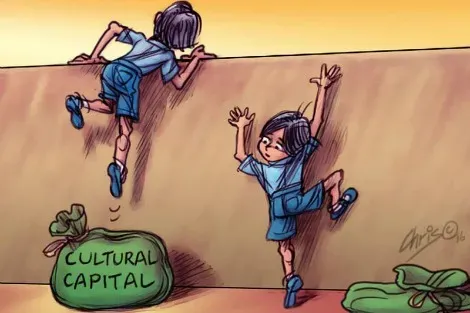
#02
Different fields require different "cultural capital"
But on the other hand, the chicken baby thing is not "finished".
Because cultural capital works in the "field", different fields require different cultural capital.
The "field" is similar to a bordered area like a football field or an electromagnetic field. For example, a school is a "field", a child grows up to work, and a company is another "field".
International schools and traditional schools are different "fields". We can use a standard to distinguish these two schools, that is, the evaluation methods of students' future exports are different, one is the selection system, the other is the application system.
Selection system: No matter who you are, at the same time, at the same place, and with the same test papers, those with a higher total score will be admitted, and those with a lower score will be eliminated.
Application system: try to express who you are, what you are good at, what you like, why you choose this school and major, and why the university should choose you.
The selection system looks at the total score and needs to efficiently supplement the shortcomings; the application system looks at the characteristics and needs to focus on finding the long board.
Therefore, relatively speaking, the selection system is more inclined to compete with each other, and the competition is more like a track and field arena , while the application system is more inclined to accumulate cultural capital and habits recognized by the target colleges and universities, more like a track and field arena. a baseball field .

Children who study in different "fields" certainly need some of the same cultural capital, such as reading ability, math ability, etc., but there are also differences.
In the case of the selection system, because the exam is more important and the total score is more important, then there needs to be a family atmosphere that is used to studying hard.
In the case of the application system, the ability to debate, find resources outside the school outside the curriculum, and organize clubs is required. It also comes from a family atmosphere or deliberately fostering encouragement.
Many parents would imagine that it would be great if their children could do well in two different fields, the selection system and the application system! For example, if you study in a traditional school, you have a good score in the college entrance examination, and you have a wide range of talents.
This is the source of "excessive chicken baby".
Under the international education system, standardized tests are not so important for admission to American universities, but many parents also refer to the habits within the system, pay attention to the results of their children's district and city unified examinations, and then expect their children to spend their time on TOEFL, SAT and other standards. In terms of internationalization and competition, on the contrary, they do not pay much attention to the content provided by the internationalization system that is not "standardized".
In addition to the subjects in the curriculum, many parents also attach great importance to foreign languages and various talents, but the requirements for foreign languages in the college entrance examination are actually not high, so a lot of foreign language tutoring time is wasted. And all kinds of talents are actually not very useful for further education.

And choose the traditional route or the international route? Parents can also make judgments based on their own "cultural capital".
Traditional schools basically rely on examinations, and parents' cultural capital and economic capital may not be so important. Under the international education system that prepares to go abroad, the economic and cultural capital of parents can play a more important role.
In this way, logically speaking, if the family has insufficient economic capital and cultural capital, it can only take the route of hard study.
But if the family already has certain cultural capital and economic capital, but give up these advantages and let the children study hard from 0 to 1, it seems unwise.
Moreover, if a child spends a lot of extra-curricular time in training classes, the cultural capital he acquires is the unified knowledge of the school and the training class, which reduces the unique edification obtained from the family.
In this case, wouldn't the professor with the same test scores and the two children of the working family be exactly the same?
Therefore, it should be recognized that, in addition to school education, cultural capital comes more from the family.

#03
Parents be careful,
Will the "cultural capital" that I give to my children become obsolete?
Learning is, after all, preparation for the future of work. The cultural capital that children have when they are young needs to be transferred from the educational field to the work field, but this transfer process may not be smooth.
For example , the concept of "small town to be a problem home" actually refers to the winners in the education field and the losers in the work field . Their habits and acquired cultural capital in the field of education are not welcomed in the field of work.
The relative autonomy of different fields means that this kind of transfer needs to "go through a process of reshaping in advance". The transition between the educational field and the work field may not be so smooth.
We often hear that students from prestigious schools come to the education and training industry after graduating a few years, because they have cultural capital that is more suitable for the education field, but not so suitable for the work field.
The habits brought by cultural capital and the field are interdependent. Once one party changes, the other party must also change, otherwise, there will be a kind of "hysteresis", that is, obsolescence.
For example, Don Quixote, based on past experience (information he got from reading chivalry novels), expected his medieval-style heroic behavior to be socially recognized cultural capital, not ridiculed. This is an outdated habit.
Another example is Kong Yiji's "There are four ways to write Hui characters." In the Qing Dynasty, when the philology known as "primary school" prevailed, knowing these ancient characters was indeed a recognized cultural capital. But time has changed, and at the time of the novel, new literature and scientific knowledge were recognized as cultural capital.
The reason why parents are willing to let their children attend various interest classes is actually to accumulate reasonable cultural capital for their children. But in today's drastic changes, you may step into a misunderstanding.
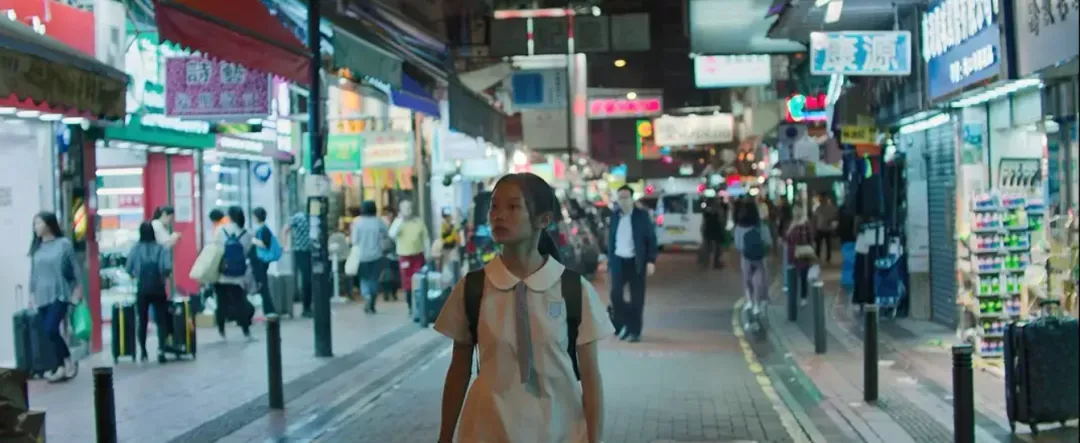
Bourdieu pointed out that when the field changes, "those who are the richest in economic capital, cultural capital, tend to take the lead in the battle for new positions" . Field participants from dominated groups, on the other hand, are a step behind.
It seems that after the reform and opening up, the original advantageous groups began to re-examine universities, study abroad and so on. The more disadvantaged groups are still busy studying secondary school, and it will take some years before they realize it.
Or, in the case of the huge gap in resources between Qingbei and other domestic universities, many parents still let their children spend their entire childhood and adolescence preparing for the college entrance examination, doing the same kind of papers as twenty years ago, and finally getting on. Ordinary universities, then postgraduate entrance examinations, and then public examinations... But maybe the children could have gone to art schools or overseas universities with much better rankings, and cultivated some unique advantages of their own.
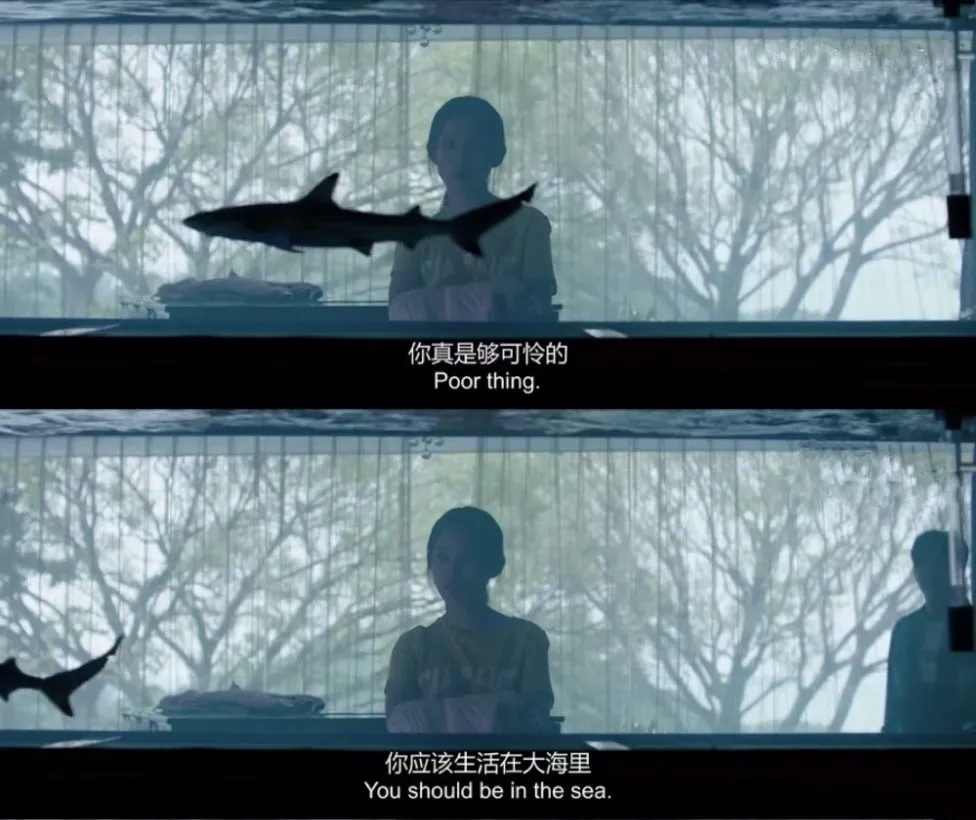
"Written on the back"
Bourdieu's theory, although esoteric, may be a good "thinking tool" for parents.
For example, I often hear reports that Tsinghua and Peking University talents and Olympiad winners have returned to normal. Is it because of insufficient economic capital or insufficient cultural capital? Why can't their achievements in the field of education be transferred to other fields?
Why should children learn piano? If parents do not have the cultural capital and social capital in the art world, what is the role of children learning the piano?
What is the difference between the language ability in the educational field and the language ability in the work field?
Is an American university degree useful? Is a Chinese university degree useful? Is liberal arts education useful? Would Google's training certificates be more useful?
Of course, the sociological concept of cultural capital is just a reference. But this can make our parents think more closely. As the economist Alfred Marshall pointed out: "The most valuable part of all capital is that which is invested in people, and the most valuable part of this is the care and influence of the mother." So the family makes The original habits and cultural capital of the people are indeed very important, and can not rely on various external training courses.
Then parents can think about this: What kind of cultural capital does my family have? What habits do I want my child to have? What kind of education "field" did you enter, and what kind of work "field" might you enter in the future? Has your habit been "stagnant"?

Like my work?
Don't forget to support or like, so I know you are with me..
Comment…